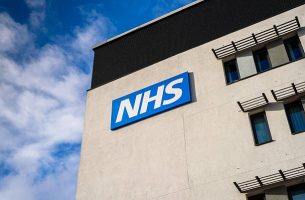A blood test called creatinine. This measures the levels of a waste product called creatinine in your blood. It is normally 60-120 mcmol/L. You may have chronic kidney disease (CKD) if your level is higher than this level. Your doctor uses your blood test result – plus your age, size, gender and ethnic group […]
Read More___________________________________________ Welcome to this week’s myHSN Week in Health – a round-up of the biggest health news this week, and what it means for you _____________________________________________ Infected blood scandal: How it affects you today Ask about alcohol and document it, NHS told Cannabis for rare disease NHS111 expanding – how will it benefit you? What are the major plans […]
Read MoreHere are examples of conditions where you should consider seeing a pharmacist first. Aches and pains – e.g. back pain, headache and migraine, period pain, teething and toothache Accidents – e.g. ankle sprain, minor cuts, grazes and burns Allergies – e.g. bites and stings, skin reactions Colds and flu – e.g. cough, congestion, sore […]
Read MoreThere are two main types of COVID-19 test: Lateral Flow Test (LFT) – which are done by you at home. They detect proteins (called antigens) from the virus. Most LFT tests are performed completely at home, giving you results within minutes, without needing to send your sample to a laboratory. Polymerase Chain Reaction (PCR) test […]
Read MoreAlot. More than 1.6 million people go to a pharmacist More than 1 million people attend a GP appointment More than 250,000 people attend a hospital outpatient appointment Nearly 45,000 people attend A&E majors (and about 25 per cent of those patients are admitted into hospital) About 12,000 emergency admissions occur More than 30,000 people call […]
Read MoreWhat to pack This is what we would recommend you bring: 2 sets of nightwear and several items of underwear Some day wear as well. This is now encouraged and helps patients recover more quickly Slippers Glasses or contact lenses Toothbrush, toothpaste, soap Sanitary towels (for women) Shaving things (for men) Sleep mask and […]
Read MoreYes. Through something called ‘NHS 111 First’. If you have an urgent, but not life-threatening health problem, you can now contact NHS 111 First to find out if you need to go to A&E. NHS 111 can book you an appointment at your local A&E. This means you will have an allocated time to attend […]
Read MoreWho typically gets psoriasis? No just Kim Kardashian. In fact psoriasis is very common and affects 2% of people in the UK. It can start at any age, but most often develops in adults between 20 and 30 years old and between 50 and 60 years old. It affects men and women equally. The […]
Read MoreFirst of all. What is an infection and infectious disease? Germs are small living organisms (animals). They are a part of everyday life and are found in our air, soil, water, and in and on our bodies. Some germs are helpful, others are harmful. An infection occurs when germs enter the body, and increase in […]
Read MoreYes. How? Short answer = Graduate Entry Medical School This is a course for degree-holders who want to pursue a career in Medicine. You should consider this option if you: Did not quite get the A level grades Did not receive any Medicine offers this year and are now planning to study a different degree […]
Read More










